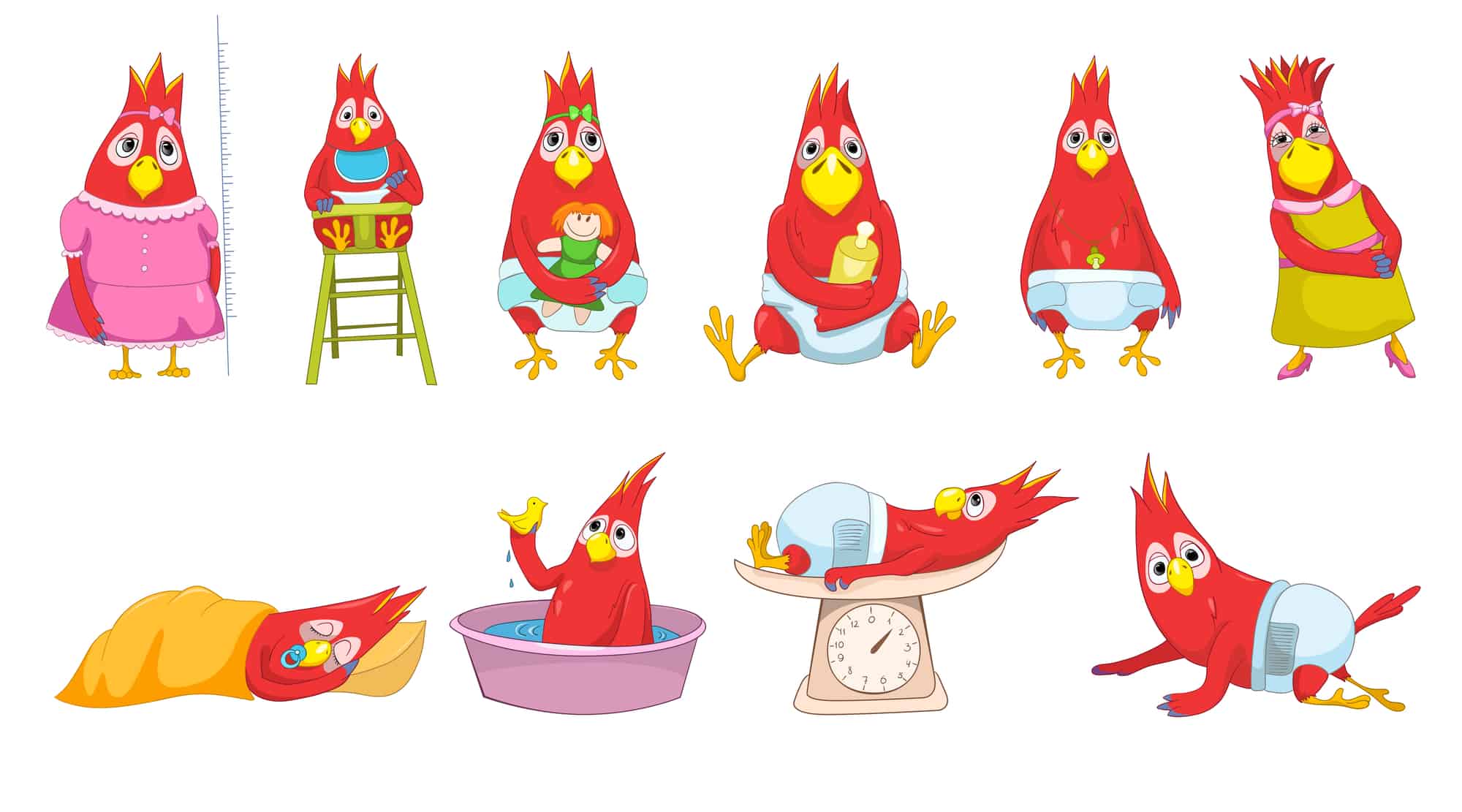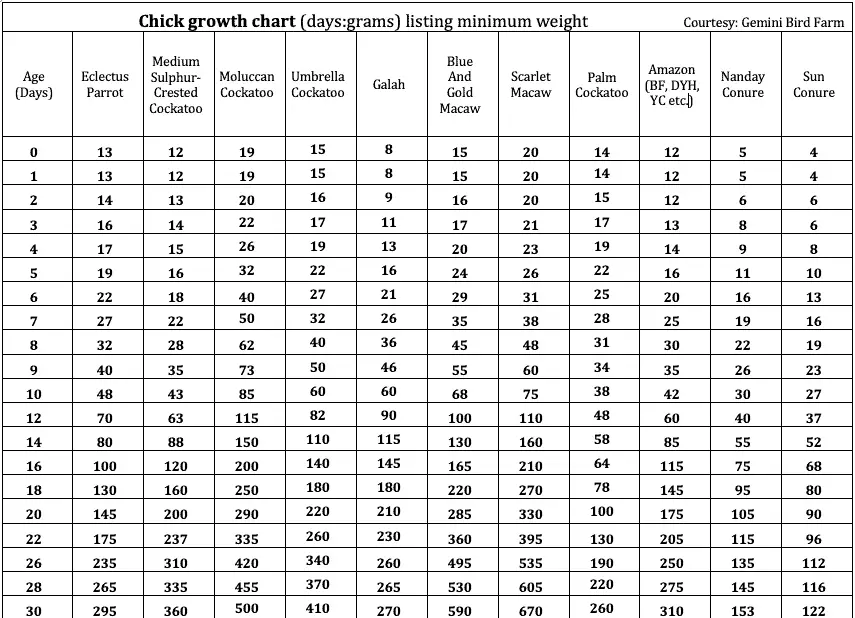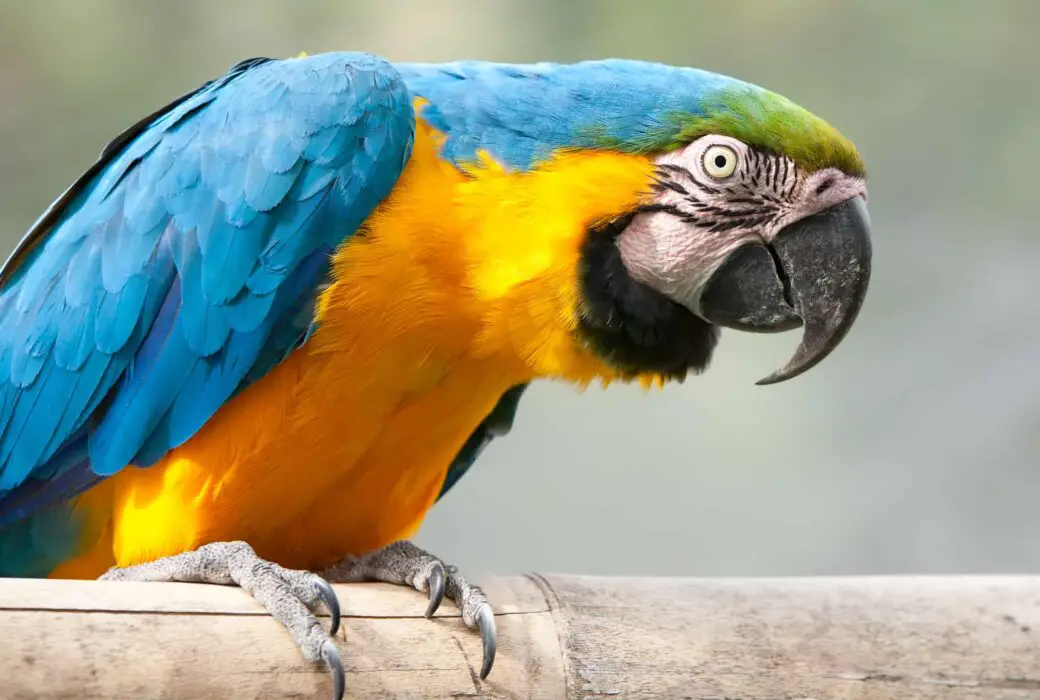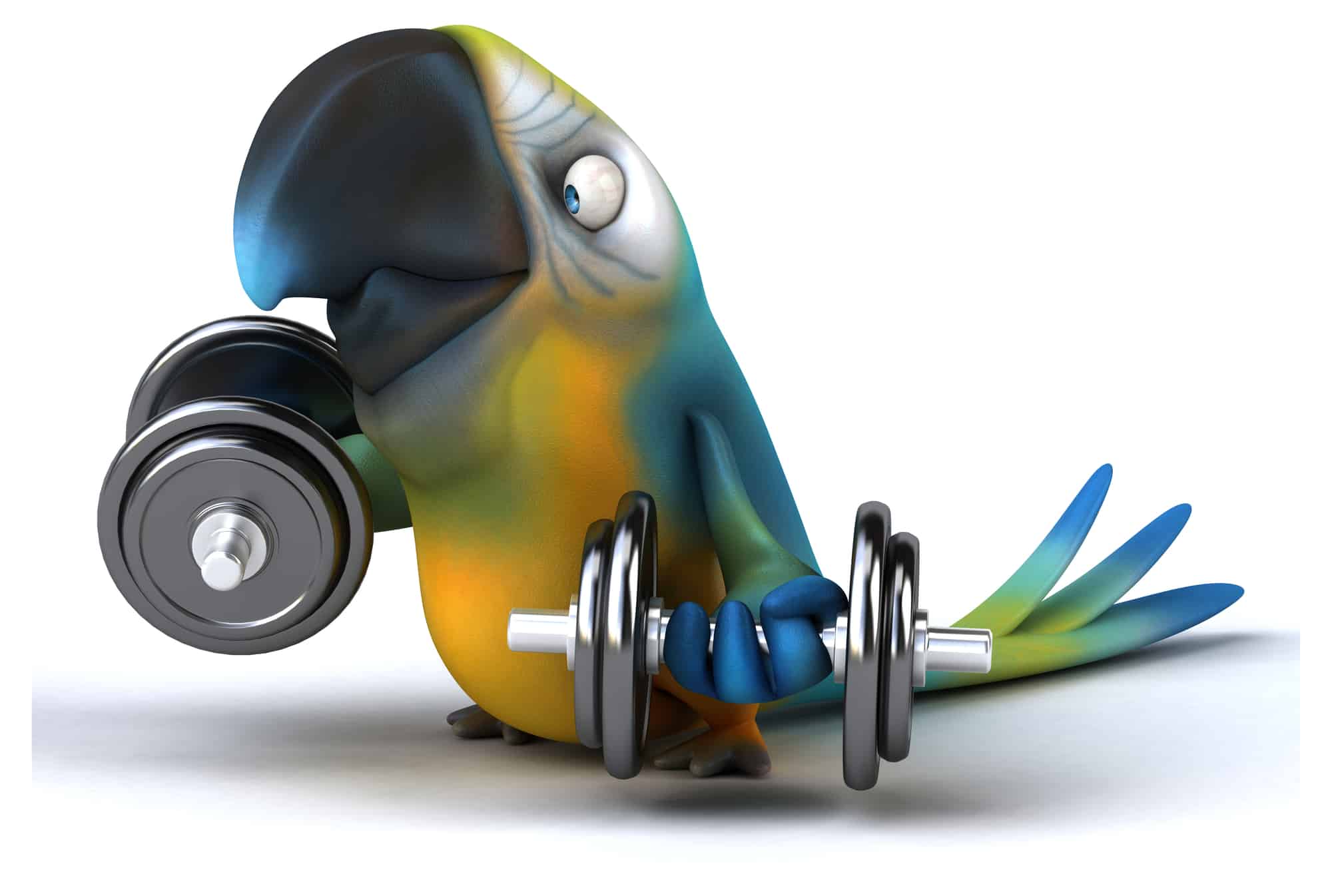A Blue and Gold Macaw is a trendy parrot type featured in cinema and adopted as a pet. Every parrot owner should pay special attention to their bird’s health. A proper diet ensures that the bird receives the essential nutrients and keeps in good form to stay active and happy. A parrot’s weight can tell a lot about the bird’s health. But how much should a Macaw weight?
On average, Macaws are rather large parrots. An adult Blue and Gold parrot should weigh around 1kg (2.2 pounds). Of course, slight fluctuations are typical depending on its size, season, gender, and so on. If your bird is of this weight, you can be sure that its calorie intake/expenditure is balanced.
But let’s check in detail what factors can change the bird’s weight and how to deal with it.
What Weight Is Healthy for Blue and Gold Macaw?

On average, a healthy adult Macaw should weigh 1kg – 2.2 pounds. The typical healthy weight range is 900g to 1.2kg (2-2.4 pounds).
But always remember that this is the norm for a grown-up bird. As chicks, Macaws weigh around 20 grams. So as your pet grows, it’s important to check its weight and stay in the healthy range.
If you have a young bird, you can use this chart that covers the most critical period of a chick’s growth

Here are a few additional measurements for all of you planning to adopt a Blue and Gold Macaw:
- height – 90cm (35 inches)
- wingspan – 100-115cm (41-45 inches)
As you see, this is a large parrot that is second only to a few types.
Remember that you need to let your bird out of its cage (which should be massive anyways) regularly. This is a large bird, and it requires lots of space to remain physically active.
A Full List of Macaw Types (With Photo and Video)
When Is Blue and Gold Macaw Adult?

The chart that I’ve included previously covers only the first 30 days during which a bird grows to half its grown-up size. Thus, a bird of 10 weeks is considered a grown Macaw and should reach its 1kg weight.
However, adult behavior is expressed around the age of 2-3 years. And they are considered fully matured only at the age of 5-6 years.
As you see, a grown and adult parrot are two different things. So, you should know that some Macaws that look big and reach their full-size potential are still somewhat “teens.”
Of course, captive birds differ slightly flow wild birds in terms of size and age. Each bird is unique!
What Do Macaws Eat: In Captivity VS In the Wild
Choose the Best Diet for Blue and Gold Macaw
As we are talking about the healthy weight for parrots, a balanced diet should be the center f attention too. Only proper food can keep a bird’s healthy weight. Plus activity, of course.
Besides, a diet should also include all the essential vitamins and nutrients, not just the correct number of calories.
Macaws typically eat specialized bird pellets, nuts, seeds, vegetables and greens, fruit. You can check my articles on specific products for safety and precautions, but each bird has its preferences. You’ll easily notice it gobbling down the few things it like the most. But make sure you treat your parrot with its favorite foods in moderation. Most often, parrots can eat vegetables as they are low in calories and full of nutrients. However, be careful with nuts as they are packed with calories. Seeds are also very important but should be given in moderation – too many calories will do no good.
An important rule: clear the feeder regularly to stop bacterial growth from leftovers!
Some owners add vitamin drops to the pet’s water, but I prefer my bird to get all necessary nutrients naturally from a rich diet. However, if your pet is in need of supplements, consult with a veterinarian!
Remember that a healthy diet is a key to a parrot’s longevity.
What Influences Macaw Weight?

As I’ve mentioned, these birds have a fluctuation range that is still considered a healthy weight. In some cases, even bigger fluctuations are considered normal.
Female parrots tend to be a bit lighter in general, but an increase in weight can result from pregnancy.
Often, a bird can be a picky eater, and you’ll have to experiment a bit. However, if there is no apparent reason why your bird gains or loses weight, it can be a sign of disease. Better check with your vet and keep a sharp eye on the bird’s behavior.
Why Parrots Lose Weight
- Not enough food. If you see that the bird is not eating well, observe it. Does it not like certain foods you give and gladly eat others? Just replace the ingredients. Has it lost its appetite in general? Go to a clinic.
- Rapid weight loss with no apparent reasons? Illness. Some of the possible diseases:
- Polyoma,
- Psittacosis,
- Avian Tuberculosis,
- Proventricular Dilatation Disease,
- Bacterial Hepatitis
Why Parrots Gain Weight
- Too much food. If your bird has a great appetite and you constantly feed it, the parrot will gain weight. Also, if its diet consists mainly of high-calorie foods, it’ll quickly gain weight.
- Not enough physical activity. How often do you let the bird out of its cage? How often do you play? Macaws are large birds, and the cages are often not enough for an “active lifestyle.” Give it some toys to indulge in.
- Diseases:
- heart, liver, and metabolic issues,
- Lipornatosis,
- Fatty Liver Syndrome,
- fatty tumors
Are Macaws the Smartest Parrots?
In Conclusion
A healthy Macaw weighs 1kg/2.2 pounds. However, if the bird’s weight fluctuates more than 200 grams or changes rapidly, it’s a reason for an immediate vet appointment. Drastic weight fluctuations are one of the first symptoms of many diseases.
One of the main components of proper weight is a healthy diet and regular physical activities. If you balance these two, your bird will be of healthy weight and remain your companion for long years to come.


